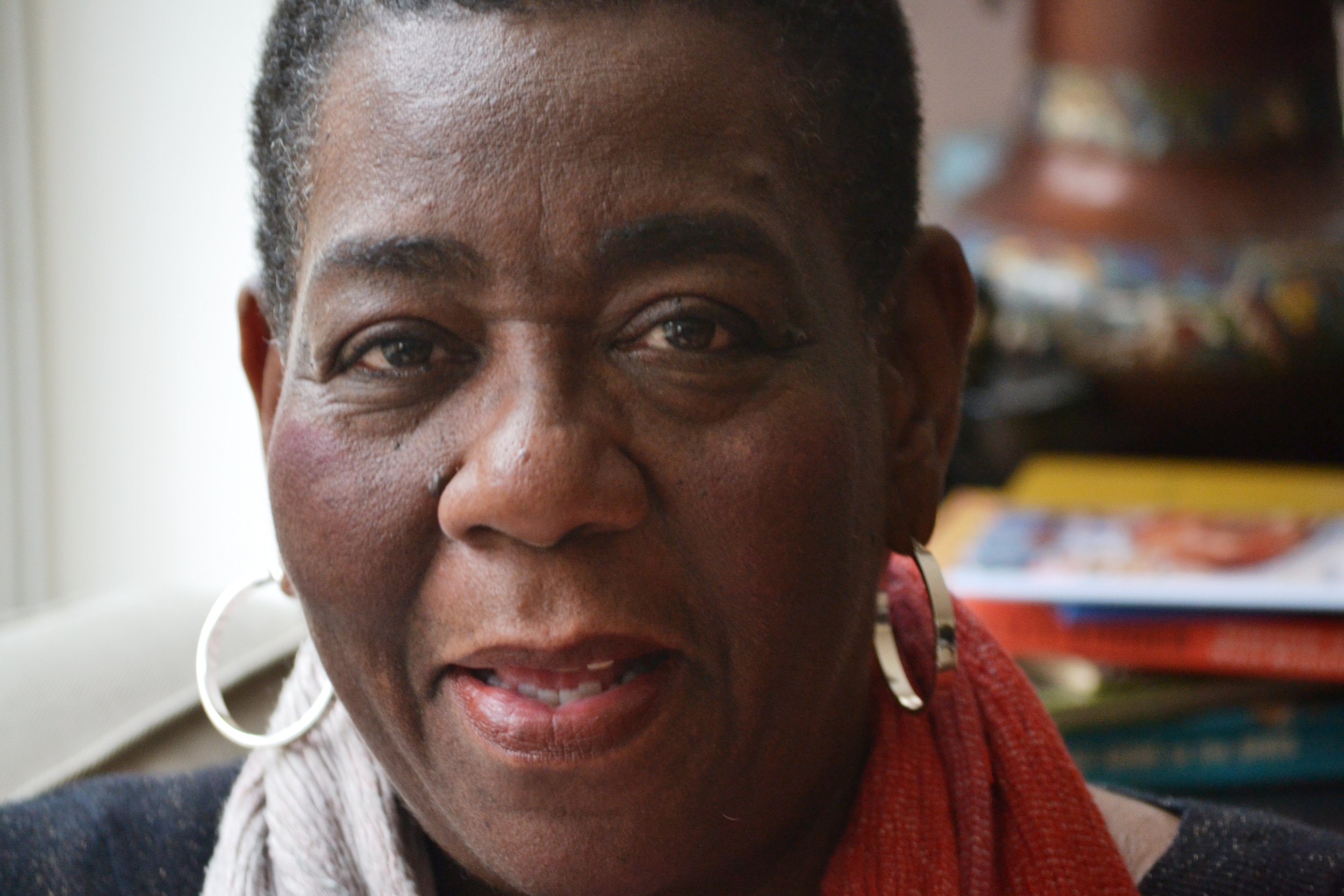Ingrid Askew
Continuing our theme of historical pilgrimage as a way to explore black relationships to land, we return to the Interfaith Pilgrimage of the Middle Passage (read more about the pilgrimage here). Ingrid Askew led this twelve-month walk through the eastern United States, the Caribbean, Brazil, West Africa, and South Africa, to reverse and revise the direction of the Middle Passage symbolically and geographically. The pilgrims were a multiracial, interfaith group that included Ingrid’s daughter, Raina.
Much of the pilgrimage was a reckoning with the historical trauma of enslavement and colonization as a transnational experience. Many African-Americans know about the history of slavery in the United States; yet embodying the Middle Passage and confronting the emotional scope of this historical trauma in very personal terms transformed them. Ingrid described helping her daughter through such a moment of confrontation and understanding while the pilgrims were encamped in Puerto Rico.
I got in the tent one night, and [Raina] was crying her eyes out. And I was like, “What’s the matter? What’s going on?” She said, “I get it now, Mommy. I get it, I’ve learned enough. I don’t want to know anymore, I don’t want to learn anymore. I just want to go home. I don’t want to do this pilgrimage anymore” she said. “It’s too painful. I’m not going to go to Africa, I’m going back to the states, Mom.”
And I said, “No you’re not. No you’re not, I can’t allow you to do that, because I don’t want to spend the rest of my life regretting not making you do it, and I don’t want [you] to spend the rest of your life regretting not having done it. No. You’re going. When you signed on for this pilgrimage, you didn’t sign on for yourself, you didn’t sign on for me, you signed on for your ancestors. That’s who you’re walking for. That’s why you’re learning all this painful stuff. For them. Think about them. Think about the pain they felt. You’re going. I’m sorry, honey.
Guided by the fierce determination of mama love and an intuitive understanding that the emotional trauma caused by slavery must be fully faced before it can be released, Ingrid asked what brought on her daughter’s feelings of being overwhelmed. Raina told her:
“Mommy, I’m just thinking about Haiti.” She loved Haiti. She said, “And I’m thinking about every place that we have walked on this pilgrimage so far. Mom, it’s been 6 months, and every place that we went, the people [who] were suffering, look like me. But I get it now. I get it. I get why there’s this, why there’s all this wealth for such few people, and why there’s such dire poverty in the world. It’s all about the greed. I get it, but I don’t want to know anymore. Cause it hurts, it just hurts.”
Ingrid pauses at the memory of helping her daughter cross the threshold from thinking about the historical trauma of the Maafa to knowing it. “And I just held her in my arms all night. And she just cried and slept, and woke up and cried some more.”


